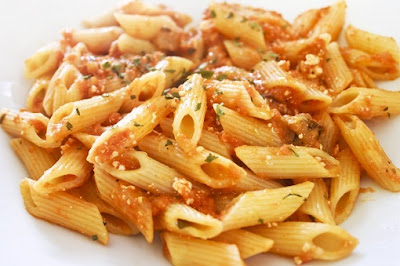
Most people who long to have leaner muscles would think that the best way to achieve it is by working out. But the truth is there are certain types of foods that go in line with the weight training exercises that are done. These kinds of foods increase the process of muscle repair and make them stronger. A study was even released showing the relationship of protein and the synthesis of lean muscles wherein muscle synthesis can be improved by consuming protein with in the right time, right amount and right type.
According to health experts, it is recommended to take in a gram to 75 grams of protein per pound of body weight in order to build up muscles mass. Although our bodies produce its own kind of protein, the protein we need to consume should be complete with all the amino acids because our bodies are not capable of producing this kind of protein. In order to get the most out of your diet, it would be best top pick the right choices of foods. Apart from proteins, fats and carbs also have big roles in promoting muscle growth.
Protein
Protein is one very essential nutrient that our body needs. This complex compound is made of amino acids that is important in synthesizing new tissue or for repair and making new cells in order to support normal growth and development. It is also with the nutrient protein where different enzymes, hormones and other bodily secretions are formed. There are different types of protein but what we really need are complete proteins because it is what provides our body with the essential amino acids to make sure that we are strong and healthy because it helps in our immune function.
Foods for Lean Muscles
If we really want to build up strong and lean muscles, we must consume high amounts of protein but it should not be just any protein rather complete protein. Complete or whole protein is a kind of protein that possesses all the nine essential amino acids that our body really needs. Although there are other foods that contain protein not all of them have all the essential amino acids. Almost all kinds of foods have all the twenty amino acids at some rate but their proportions vary because some are deficient while others are complete.
It is recommended that you include in your diet both plant-based and meat protein sources in order to increase the biological value of the food that you eat. The list below shows examples of foods that are sources of complete protein.
Meat, Poultry and Fish
These three kinds of food sources contain complete proteins. When you are selecting meat, go for lean cut meats in order to avoid taking in saturated fat. When we have too much saturated fat, our blood cholesterol levels are increased making us highly at risk for heart problems. According to expert nutritionists, excellent sources of complete proteins are beef bottom round, pork chop, skinless poultry and fish.
Dairy Products
Dairy products are also sources of complete proteins because they are also animal products. Because there are dairy products that contain high amounts of saturated fat, it is recommended to go for low-fat and nonfat sources of dairy. Aside from being excellent sources of protein dairy products are also a rich source of calcium.
Soy Foods
Among all the plant-based foods out there, only soy foods make it to the list of complete proteins because it has all the nine essential amino acids. They do not just contain protein but they are also good sources of fiber, folate, isoflavones, iron and polyunsaturated fat.
Fish
There are several species of fish that are rich sources of protein such as cod but the best choices of fish are salmon, trout and herring are recommended because they not only give protein but also a good source of omega 3-fatty acids. Omega-3 fatty acids are good for heart and helps in lowering cholesterol levels as well as lower inflammation and other health benefits.
Beans
Beans are also a good source of protein. Just make sure you go for the low-fat ones such as garbanzo beans, baked beans, tofu, hummus, split pea and white bean soup to name a few.
Protein Supplements and Food for Lean Muscles
There is a growing number of protein supplements out in the market today. For people who seriously want to be able to get the lean muscles that they really long for, they use protein supplements to do the trick. Protein supplements and protein foods both help in meeting our daily requirements in order for us to get the amino acids that our body is not able to make. These amino acids are being used in order to synthesize new proteins for several bodily functions such as ensuring the proper functioning of the immune system, making new blood cells, hormone production, tissue repair and most of all muscle building.
These supplements and food sources both have pros and cons that we should closely look at before we decide on taking them. It would be best to first consult a nutritionist or dietitian to see if you really need protein supplements or increase the intake of protein in your dietary plan.
Protein Supplements
Pros: protein supplements are actually from food proteins and contain complete proteins which means it has all the nine essential amino acids that our body needs. These supplements are very convenient because they give all the proteins we need that we might not get in our meals. You may also mix these protein supplements to your food and drinks if you wish. Plus, it makes it easy for you to keep track of your daily protein intake.
Cons: economically speaking, protein supplements are quite costly compared to getting complete proteins from other food sources. Because they are considered to be isolate protein products, they may not contain the other nutrients that naturally accompany proteins found in other protein-rich food products.
Food as Protein Sources
Pros: just like protein supplements, there are also food sources that contain complete proteins and have all the nine essential amino acids that our body is not able to produce. As for other kinds of foods such as vegetables which is not a complete protein, it can still be eaten by combining it with other foods that may have the amino acids that it lacks and we know how vegetables can greatly contribute to our health because it is rich in fiber, minerals, carbs and vitamins.
Cons: although food protein sources are way cheaper than protein supplements, still, most protein-rich foods need planning and preparation and do not work by simply combining it to shakes or foods. As mentioned earlier, because there are foods that are healthy but do not possess all the essential amino acids, such as vegetables, it needs to combined with other foods that has the amino acids it lacks in order to get the complete protein that we need.
- food for muscles
- foods for lean muscles
- foods protein
- lean muscle food
- lean muscle foods
- muscle foods
- muscles needed by food
- protein foods
- foods for lean muscle
- foods for lean muscle and fat loss
- best foods for lean muscle and fat loss
- best breakfast foods for lean muscle
- best foods for lean muscle reddit
- vegan foods for lean muscle
- best carb foods for lean muscle
- list of foods for lean muscle
- healthy breakfast foods for lean muscle
- best snack foods for lean muscle
muscle
building foods,best foods to eat for muscle gain,build muscle,muscle,diet for
lean muscle,foods for muscle growth,best foods for building muscle,best foods
for muscle building,best foods for building lean muscle mass over 50,best foods
for building muscle over 50,gain muscle,diet for muscle building,best foods for
building lean muscle for men over 50,muscle building foods for skinny guys,best
foods for building muscle for men over 50
balanced diet,healthy eating,healthy diet,healthy
balanced diet,healthy,healthy meals,health,healthy diet (diet),balanced healthy
diet,healthy food,healthy balanced meals,balanced meal,healthy balanced meal
prep,balanced meals,balance diet,balanced,healthy and balanced what i eat in a
week,healthy recipes,how to eat healthy,balanced diet for kids,what is a
balanced diet,what is a balanced diet?,healthy eating plan,health tips








